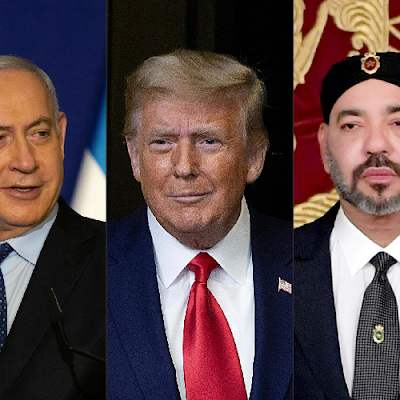Le Front Polisario a, dans une lettre adressée au président du Conseil de sécurité et adoptée comme «un document officiel» du Conseil, souligné que la récente décision du président américain sortant Donald Trump de reconnaitre la prétendue souveraineté du Maroc sur le Sahara occidental, «constitue une position unilatérale qui viole la Charte des Nations unies et les résolutions des organes de l’ONU», et «encourage le Maroc à poursuivre son occupation illégale».
«La décision prise (le 10 décembre) par le président sortant des Etats-Unis est regrettable et constitue une position unilatérale qui viole la Charte des Nations unies et les résolutions des organes de l’ONU, dont celles du Conseil de sécurité que les Etats-Unis avaient eux-mêmes rédigées et approuvées ces dernières décennies», regrette le Front Polisario dans la lettre adressée récemment au président du Conseil de sécurité par le Représentant du Front Polisario à l’ONU, Sidi Omar.
«Cela est d’autant plus regrettable que cette proclamation s’écarte de la politique traditionnelle des Etats-Unis concernant le Sahara occidental, rompt avec une position de longue date sur le droit à l’autodétermination, inscrit dans la Constitution des Etats-Unis, et remet en cause un de leurs principes cardinaux», déplore encore le Front Polisario. La décision prise par Trump, en contrepartie de la normalisation des relations entre le régime marocain et l’entité sioniste «entrave l’action menée par l’ONU et l’Union africaine (UA) pour parvenir à un règlement pacifique de la question du Sahara occidental. Elle encourage également l’état occupant marocain à poursuivre son occupation illégale et ses actes hostiles, qui ont déjà mené à son agression militaire du 13 novembre 2020 contre le Territoire sahraoui libéré (El-Guerguerat), rompant le cessez-le-feu mis en place depuis 1991», met-il-en garde.
La proclamation de Trump, ajoute le Front Polisario dans la lettre, méconnaît encore les résolutions de l’Assemblée générale, notamment la résolution 2625 (XXV) de 1970, qui dispose que nulle acquisition territoriale obtenue par la menace ou l’emploi de la force ne sera reconnue comme légale, et constitue par conséquent «une violation du droit international humanitaire et des obligations des Etats de ne se livrer à aucun acte et de n’apporter aucune forme d’assistance qui pourrait avoir pour effet de consolider une situation illégale créée par une contravention grave aux principes fondamentaux du droit international». De ce fait, «le Gouvernement de la République sahraouie et le Front Polisario espèrent que le Gouvernement entrant des Etats-Unis annulera la décision unilatérale prise par le Président sortant et veillera à ce que les Etats-Unis continuent d’apporter leur concours, de manière constructive, à l’action internationale visant à parvenir à une solution pacifique et durable, fondée sur l’exercice par le peuple sahraoui de son droit inaliénable à l’autodétermination et à l’indépendance», a encore souligné le Front. Il rappelle dans sa lettre que «le statut juridique du Sahara occidental est indubitablement clair.
La Cour internationale de Justice, qui est l’organe judiciaire principal de l’ONU, a émis un avis consultatif sur le Sahara occidental le 16 octobre 1975 dans lequel elle a conclu que les éléments portés à sa connaissance n’établissaient l’existence d’aucun lien de souveraineté territoriale entre le territoire du Sahara occidental et le Royaume du Maroc». «En rejetant les revendications de souveraineté du Maroc sur le Sahara occidental, la Cour a clairement établi que la souveraineté sur le Territoire incombait au peuple sahraoui, qui avait le droit, par l’expression libre et véritable de sa volonté, de décider le statut du Territoire, conformément à la résolution 1514 (XV) de l’Assemblée générale et à d’autres résolutions relatives à la décolonisation.
APS
#Maroc #Israel #SaharaOccidental #WesternSahara #DonaldTrump #Normalization




